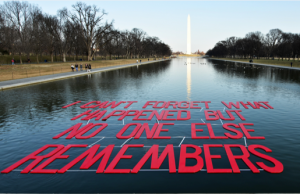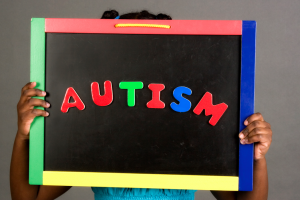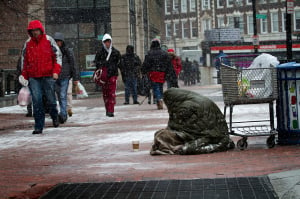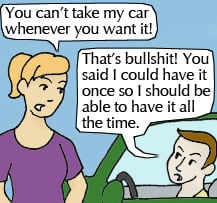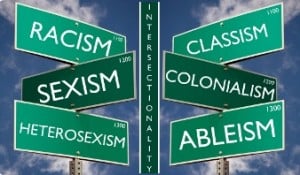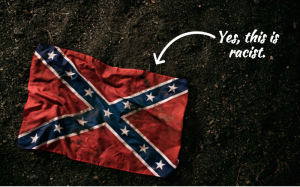From slut-shaming to death threats, recent news stories have highlighted the disturbing reality of how Americans respond to survivors of sexual violence.
For many survivors, the way that their community responds to their stories is equally, if not more, traumatic than their assaults.
We are in a unique cultural moment where this problem is getting national attention, and it’s imperative that we take advantage of it. The question to ask ourselves is: Where does our country go from here?
Currently, we have plenty of models for how individuals can support survivors of rape.
Feminists have built and maintained crisis centers, hotlines, and emergency services. Anti-violence organizations have created excellent how-to’s and information guides for friends and families. Counselors and therapists are trained to help rape survivors recover from trauma.
While there is still work to be done to provide survivors with adequate services, our culture understands the need for these services.
And this is all a great start.
But until we create public spaces where the experiences of survivors are honored, Americans’ reactions will continue to do more harm than good for a population that has already experienced enough harm.
Private responses to sexual violence make sense in our collective consciousness. What our culture does not yet understand is how to support survivors publicly.
What should high school students do when one of their classmates is gang-raped at a weekend party? What should a town do when a local hero is prosecuted for assault? What should a family do when the reality of incest surfaces?
Where is the how-to guide for them?
There isn’t one.
There is no normal process for a community to respond to the reality of rape. And as a result, stories of sexual violence either erupt in controversy or remain locked away in secret.
Rather than tearing a community apart, sexual violence should be treated as the trauma and tragedy it is, bringing communities together in a time of need.
To live in such a country, we need models for how to publicly honor the experiences of survivors.
So where can we start?
1. Honor the Experience of Survivors
We already…
Honor the survivors and victims of other forms of violence and tragedy.
We understand why telling the stories of war, natural disasters, and social injustice are important to understanding our culture and our history, even when it’s hard to hear.
Through documentaries and memorials, we collectively tell and retell these stories.
Now we need to…
Create and hold public spaces for rape and abuse survivors’ stories to be told and heard.
These spaces could include websites, video, discussions, public forums, and other media.
In such spaces, we shall always listen without judgment.
2. Remove the Stigma
We already…
Changed public opinion in America by removing the stigma placed on other populations.
Before AIDS activism, people living with HIV/AIDS were blamed for their illnesses. HIV-positive children weren’t even allowed to attend public school.
While the problem is ongoing, the stigma that existed during the height of the AIDS epidemic is less mainstream in American culture.
Now we need to…
Remove the stigma from survivors of rape and abuse.
Survivors should not be blamed for their assaults. Their characters should not be judged based on the trauma that they have endured.
We should not look at someone differently based on whether or not they have been raped.
Survivors should be respected for not only surviving, but thriving through the violation of their most basic rights.
3. Create Space for Healing
We already…
Create therapeutic spaces for survivors to heal.
In support groups, participants not only heal from sexual trauma, but also have insights about their own and others’ experiences.
While survivors need access to private healing spaces, it does our country a disservice that all of the insights and perspectives of survivors remain behind closed doors.
Now we need to…
Take the important conversations happening privately to a more public platform, so that our country can not only heal from our collective trauma, but also gain insights about what in our society causes this violence.
We need to help survivors reconnect to community by building public space for healing. These spaces can be created in parks, events, or monuments.
—
This version of a country – where survivors of rape are honored and not shamed. – can seem hard to imagine.
But it’s possible.
As an art and activist campaign, FORCE: Upsetting Rape Culture creates ways for people to imagine a day without rape.
For starters, FORCE is installing temporary monuments to survivors of rape and abuse on the National Mall as a call to create a permanent monument.
For our first guerilla monument, we floated a giant poem in the reflecting pool that spelled out lines from a poem: “I can’t forget what happened, but no one else remembers.”
The author of that poem says this about the need for a permanent memorial:
“There are no safe places to talk about my experience. A lot of my healing process has been internal. A public monument would create both a physical space and a psychological space that does not exist in our culture — one where survivors are not blamed or judged, but rather are honored and respected for their ability to survive and thrive through trauma and shame, where they do not need to learn to live with part of their identity hidden, and where their character is not judged by their assault.”
Coming in the summer of 2014, FORCE will install its largest temporary monument to date.
Currently, we are gathering stories from survivors that will be put together to build a quilt.
This quilt will be a giant picnic blanket that invites the public to sit, eat, and talk.
For one weekend, our picnic will occupy the mall, like the historic installations of the AIDS quilt.
The installation will create a public and highly visible cultural space in which survivors’ stories are honored and respected instead of silenced and shamed.
The picnic and conversations will create the public understanding that will help make a permanent monument a reality.
Right now, we’re gathering stories from survivors and would love to hear from anyone with a story to tell. We’re also fundraising to create this temporary memorial.
Healing not only individuals, but also our society, is one of the necessary steps towards ending rape.
What can you do to create public, supportive spaces for survivors?
Want to discuss this further? Login to our online forum and start a post! If you’re not already registered as a forum user, please register first here.
Rebecca Nagle is the co-founder and co-director of FORCE: Upsetting Rape Culture. FORCE is currently rallying to create a national monument to survivors of rape and abuse so that our country may have a public space for survivors to heal. Learn more about their work here.
Search our 3000+ articles!
Read our articles about:
Our online racial justice training
Used by hundreds of universities, non-profits, and businesses.
Click to learn more


